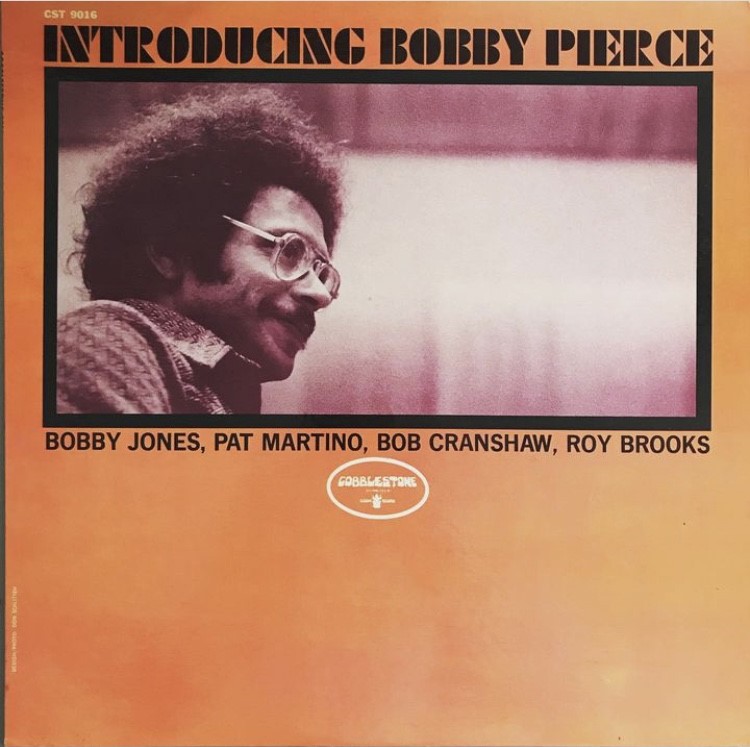He should have been better known but he should have known better than to sing on his debut album.
Personnel
Bobby Pierce (organ), Bobby Jones (tenor saxophone), Pat Martino (guitar), Bob Cranshaw (electric bass, A2, B2), Roy Brooks (drums)
Recorded
in New York City in 1972
Released
as Cobblestone 9016 in 1972
Track listing
Side A:
Think
Here, There And Everywhere
I Remember Ray
Side B:
Mr. PC
Wichita Lineman
To Newport With Love
TIt was rather late to introduce a Hammond organist in 1972. The glory days of the organ jazz circuit in the 1960’s were over and electronic organs and synthesizers surpassed the Hammond organ as a beacon in popular music. Of course, Bobby Pierce couldn’t be blamed for not being in the right place at the right time. Growing up in the late 1960’s, he had woodshedded in New York City, California and Chicago with the likes of Sonny Stitt, James Moody and Gene Ammons. Born in Columbus, Ohio, Pierce was influenced by local giant and perennial Flophouse favorite, Don Patterson. All this indicates that Pierce was ready and able.
According to the liner notes of Introducing Bobby Pierce, the obscure gentleman was part of the soul jazz group Clarence Wheeler & The Enforcers from Chicago at the time of his recording. The session was set up by Cobblestone’s label boss Don Schlitten and included tenor saxophonist Bobby Jones, guitarist Pat Martino and drummer Roy Brooks. Class acts. Pierce’s debut album is a weird stew with a couple of superb highlights. Obviously an accomplished player and writer, Pierce presents I Remember Ray, based on a thing that he heard from John Coltrane. It feels like a chord-heavy outtake from the Giant Steps-sessions, good news, all the more so because of Pierce’s fluent and fierce phrasing.
More Coltrane. The band swings Mr. PC to the ground, particularly Pat Martino, whose attack and single line runs hit you in the eye like Sugar Ray Robinson’s fists, crushes trees like lightning bolts. Too bad Pierce (or Schlitten) didn’t come up with the sane idea of completing his introduction with similar modern jazz compositions. That would’ve really sealed his reputation. Instead, the repertoire further consists of so-so funk jazz (Aretha Franklin’s Think) that lacks the excitement of the Idris Muhammad-driven funk jazz of the Prestige and Blue Note catalogue and a stab at great pop songs as McCartney’s Here, There And Everywhere and Glen Campbell’s Wichita Lineman that demonstrate that Pierce is just not a really good singer.
One of the joys of collecting, though, is picking some exceptional stuff from an uneven oddity. Two years later, Pierce recorded New York on the Muse label. Pete Fallico, the great organ jazz ambassador from the West Coast, brought Pierce back on the scene in 2008 and released The Long Road Back on his Doodlin’ label.
Listen to Introducing Bobby Pierce on YouTube here.

